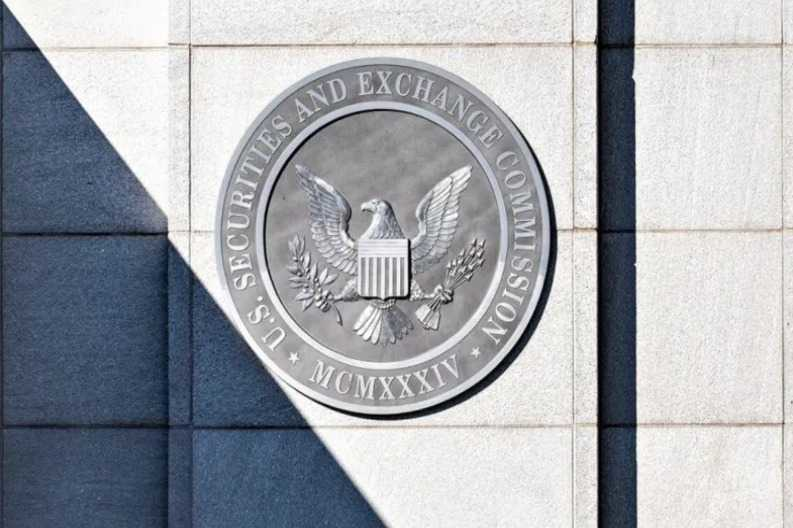(Dinarian Note: This is why I have always promoted learning as much as you can about DEXs(Decentralized Exchanges). In the end it may be our only opportunity to move assets without the assistance of the banks and assigned custodians. Yes, the banks intend to hold 95% of ALL crypto assets. That is what the end game goal is of all of this, control and power over the peoples money and freedom. It's starting to make sense? Good..)
Today, Paradigm commented on the SEC’s proposed redefinition of “exchange.” Through this haphazard rulemaking, the SEC inappropriately attempts to bring crypto trading platforms, including DEXs, under its remit and regulate them as securities exchanges. It thus appears that after suing Coinbase for failing to do the impossible—registering as a securities exchange when it was incapable of doing so—the Commission now intends to force DEXs into the same Hobson’s choice.
As our comment letter highlights, the SEC’s rulemaking proposal veers far outside the SEC’s statutory jurisdiction and violates the Administrative Procedure Act, a key law that protects the American public against autocracy and bureaucratic whim—it should therefore be promptly withdraw.
Although the acronym “DEX” includes the word “exchange,” DEXs differ from traditional “exchanges” in several fundamental respects, which makes treating them alike incoherent. The “exchanges” the SEC has authority to regulate: 1) serve as intermediaries in securities transactions; AND 2) are run by some specific entity capable of collective action. These features are plainly set forth in the Exchange Act’s own definition of “exchange.” 15 U.S.C. § 78c(a)(1). They are also crucial components of the Act’s history and purpose.
But DEXs lack both of these critical features. A DEX, particularly one using automated market maker mechanisms, involves no person intermediating transactions between buyers and sellers—instead, it uses an algorithm to balance pools of crypto assets that potential buyers or sellers can freely access. Nor is a DEX run by any entity capable of collective action, but rather relies on self-executing code that in many instances cannot be changed or upgraded. No matter how you jostle or squint at them, DEXs are not “exchanges” as contemplated by the Act, and the SEC’s proposal to treat them as such is beyond its statutory jurisdiction.
The SEC’s proposal also draws arbitrary and capricious distinctions amongst developing technologies and replaces well-understood terms with novel, vague, and ambiguous ones. The result is that the agency’s newfound definition of “exchange” is so far-reaching that it would facially encompass entities that are plainly nothing like exchanges, such as Bloomberg’s messaging service. The SEC purports to solve this problem by simply carving those messaging services out of the definition by blunt force, but that move is itself arbitrary and capricious.
Finally, the SEC’s haphazard proposal also violates the rulemaking procedures of the Administrative Procedure Act. The SEC first surfaced its revolutionary new definition in a March 18, 2022 notice, which failed to mention DeFi and suffered from a far-too-short, 30-day comment period and a total absence of cost-benefit analysis. The SEC effectively acknowledged these shortfalls by reopening the comment period, first in May of 2022 and again in April of 2023. But these make-up comment periods do not solve the procedural flaws inherent in the original notice. To the contrary, by the time the SEC actually stated its intent to regulate DEXs in the April 2023 notice, the notice made clear that its mind had been closed on the matter—a clear violation of the APA’s requirement of a fair opportunity for public comment. The SEC’s admission of its own errors does not resolve them; there is no “get out of jail free” card under the APA.
In short, the proposed rules are fatally flawed on the merits and procedural grounds. They should promptly be withdrawn.











 All while Pfizer—a company with a $2.3 billion criminal fine for fraudulent marketing, bribery, and kickbacks—was given blanket immunity from liability and billions in taxpayer dollars to produce a vaccine in record time with no long-term safety data.
All while Pfizer—a company with a $2.3 billion criminal fine for fraudulent marketing, bribery, and kickbacks—was given blanket immunity from liability and billions in taxpayer dollars to produce a vaccine in record time with no long-term safety data.
























